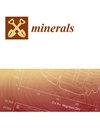探索低品位铁矿石选矿技术:全面回顾
IF 2.2
4区 地球科学
Q2 GEOCHEMISTRY & GEOPHYSICS
引用次数: 0
摘要
低品位铁矿石的选矿是矿物加工行业的一个重要研发课题。随着高品位铁矿石储量的逐渐枯竭,以及全球钢铁消费需求的不断增长,必须对低品位铁矿石进行高效选矿,以满足炼钢质量要求。这篇综述探讨了低品质铁矿石的各种选矿技术,重点是包括粉碎、浮选和重力选矿在内的传统方法。文章讨论了这些技术中使用的原理、工艺和设备,并重点介绍了该领域的最新进展和研究工作。本综述还强调了有效选矿工艺在提高经济可行性、可持续资源管理和环境保护方面的重要性。此外,综述还介绍了博茨瓦纳铁矿石矿藏的案例研究,强调了通过还原焙烧最大限度地利用资源,然后使用半烟煤作为还原剂对铁矿石进行磁选,可以实现潜在的经济增长和可持续发展。总之,本综述对低品位铁矿石选矿技术及其在满足对高质量钢铁产品日益增长的需求方面的意义提供了宝贵的见解。本文章由计算机程序翻译,如有差异,请以英文原文为准。
Exploring Low-Grade Iron Ore Beneficiation Techniques: A Comprehensive Review
The beneficiation of low-grade iron ores is a key research and development topic in the mineral processing industry. The gradual exhaustion of high-grade iron ore reserves, and rising consumer iron and steel demand globally necessitate efficient low-quality iron ore beneficiation to meet steelmaking quality requirements. This comprehensive review explores various beneficiation techniques for low-quality iron ore, focusing on conventional methods including comminution, froth flotation and gravity separation. This article discusses the principles, processes, and equipment used in these techniques and highlights recent advancements and research efforts in the field. This review also emphasizes the importance of effective beneficiation processes in enhancing economic viability, sustainable resource management, and environmental conservation. Furthermore, it presents a case study of iron ore deposits in Botswana, highlighting the potential economic growth and sustainable development that can be achieved by maximizing resource utilization through reductive roasting, followed by magnetic separation of iron ore using semi-bituminous coal as a reductant. Overall, this review provides valuable insights into low-grade iron ore beneficiation techniques and their significance in meeting the growing demand for high-quality iron and steel products.
求助全文
通过发布文献求助,成功后即可免费获取论文全文。
去求助
来源期刊

Minerals
MINERALOGY-MINING & MINERAL PROCESSING
CiteScore
4.10
自引率
20.00%
发文量
1351
审稿时长
19.04 days
期刊介绍:
Minerals (ISSN 2075-163X) is an international open access journal that covers the broad field of mineralogy, economic mineral resources, mineral exploration, innovative mining techniques and advances in mineral processing. It publishes reviews, regular research papers and short notes. Our aim is to encourage scientists to publish their experimental and theoretical results in as much detail as possible. There is no restriction on the length of the papers. The full experimental details must be provided so that the results can be reproduced.
 求助内容:
求助内容: 应助结果提醒方式:
应助结果提醒方式:


